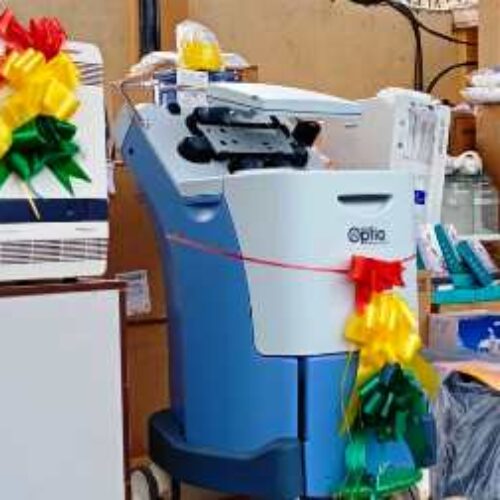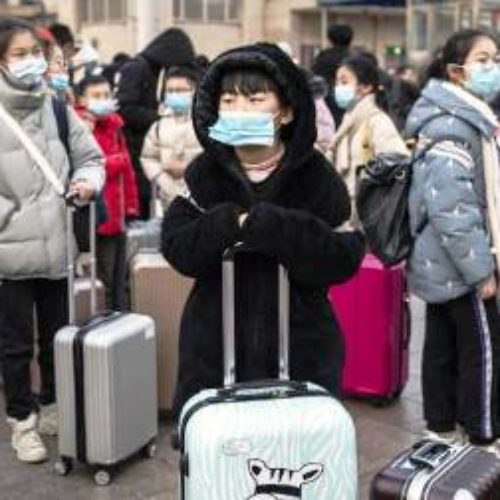International Day of Zero Tolerance for FGM: World may miss eradication target – UNFPA, UNICEF say
Amid report that no fewer than 4.3 million girls are at risk of female genital mutilation (FGM) this year, the United Nations Population Fund (UNFPA) and UNICEF have raised the alarm that the world could miss the its target of ending the scourge by 2030 if no urgent action is taken by affected countries, including men and boys.
In a joint statement, the two global bodies said latest estimates have shown that the projected number could reach 4.6 million by 2030, “as conflict, climate change, rising poverty and inequality continue to hinder efforts to transform gender and social norms that underpin this harmful practice and disrupt programmes that help protect girls.
“Female genital mutilation (FGM) remains widespread in Nigeria. With an estimated 19.9 million survivors, Nigeria accounts for the third highest number of women and girls who have undergone FGM worldwide, with the risk of cutting highest in the first 5 years (86% of girls circumcised before age 5 – National Demographic and Health Survey 2018).”
Citing data from the 2021 Multiple Indicator Survey (MICS) (18% to 15% 2016-17/2021), the statement however disclosed that FGM prevalence in Nigeria is decreasing among women aged 15-49 while the prevalence among girls aged 0-14 has also decreased from 25% to 8% during the same time period (MICS 2021).
“This significant decrease in prevalence among girls aged 0-14 is a welcome development, given that an estimated 86% of females aged 15-49 were subjected to FGM before the age of 5 (NDHS 2018). At the same time, 12 states had a prevalence higher than the national prevalence, ranging from 9% in Edo to 35% in Kwara and Kano.
“This significant decrease in prevalence among girls aged 0-14 is a welcome development, given that an estimated 86% of females aged 15-49 were subjected to FGM before the age of 5 (NDHS 2018). At the same time, 12 states had a prevalence higher than the national prevalence, ranging from 9% in Edo to 35% in Kwara and Kano.
“Female genital mutilation (FGM) violates the rights of women and girls and limits their opportunities for the future in health, education and income. Rooted in gender inequality and power imbalances, it is an act of gender-based violence that harms girls’ bodies, dims their futures, and endangers their lives.
“Changing gender and social norms that encourage FGM is critical. Men and boys are powerful allies in the effort. Increasingly they are challenging power dynamics within their families and communities and supporting women and girls as agents of change.
The UNFPA-UNICEF global Joint Programme on the Elimination of FGM has supported over 3,000 initiatives within the last five years where men and boys actively advocate to bring an end to the practice. In Nigeria, since implementation began in 2018, UNJP has supported the engagement of 807 men’s and boys’ networks to actively advocate to bring an end to the practice. It has done this by providing opportunities and safe spaces for critical reflection on gender discrimination, power dynamics, positive masculinities and comprehensive sexual and reproductive health education targeting men and boys, so they understand the consequences of FGM.
“Men and boys remain key partners in addressing gender inequalities and harmful practices as we all collaboratively join hands to deliver the global promise of eliminating FGM by 2030’, said Ulla E. Mueller, UNFPA Resident Representative
“As a result of our collective efforts, we are witnessing significant opposition from men and boys to FGM. Today, men and boys are more receptive to change than before, and in some communities, they are more likely to disapprove of female genital mutilation and domestic violence than women and girls’, said Cristian Munduate, UNICEF Nigeria Country Representative
“This year, on the International Day of Zero Tolerance for FGM, we call on all stakeholders to:
- Partner with and engage men and boys to shift unequal power relations and challenge the attitudes and behaviours caused by gender inequality that leads to FGM.
- Integrate gender-transformative approaches and changing social norms into anti-FGM programmes.
- Invest in national-level policies and legislation protecting the rights of girls and women, including the development of national action plans to end FGM.
“Today is a reminder of the urgent need for even more targeted and concerted efforts to turn our shared goal of ending FGM into a reality. We must work together with all stakeholders – including men and boys – to protect the millions of girls and women at risk and consign this practice to history.”






0 Comments
No Comments Yet!
You can be first to comment this post!